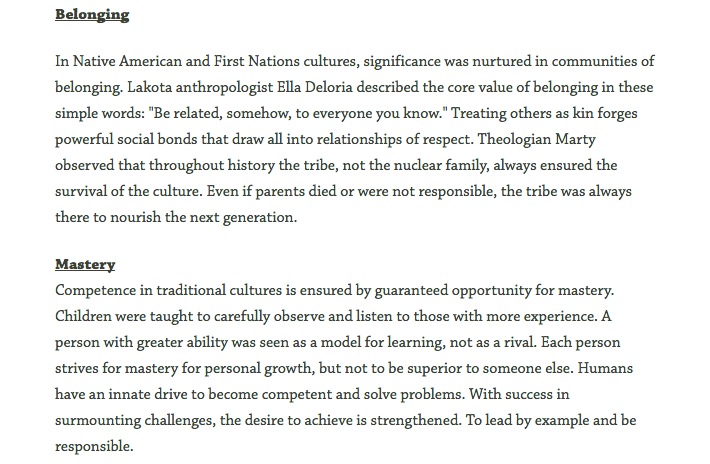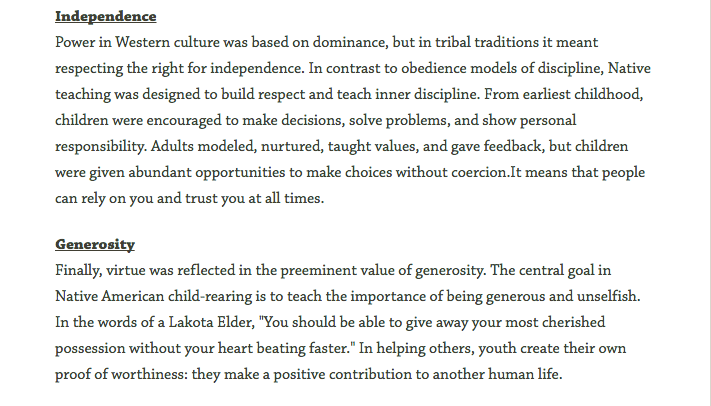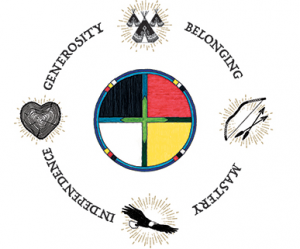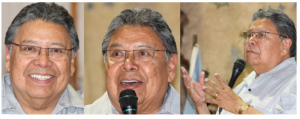Post #2- Circle of Courage (STARR Website)
As I’m focussing my research on the “Circle of Courage,” I stumbled upon the STARR website which is dedicated to the mission of creating positive environments where children and families flourish. This organization specializes in residential, community-based, educational and professional training programs that build on the strengths of children, adults and families in communities around the world.
The “Circle of Courage,” came from the book “Reclaiming Youth,” which is a holistic program based on traditional Aboriginal ways of knowing, personal development and community values. In 1997, this website founded Reclaiming Youth International (RYI) which offers strength-based training to professionals such as teachers, counsellors, social workers, psychologists and others working with children and youth to become resilient.
RYI’s uses the “Circle of Courage,” to identify the four universal needs of every child: belonging, mastery, independence and generosity. This model is trauma-informed and resilience-focused. Many Indigenous children around the world face challenges daily, including: drugs, violence, gang activity, conflict, trouble in school, and so much more. The model is designed to encourage kids to feel safe and comfortable in an environment of understanding and acceptance.

 In addition, there is a resource page that you can access: CLICK HERE
In addition, there is a resource page that you can access: CLICK HERE
Post #3- First Nations Principle of Learning
When researching about Reclaiming Youth at Risk, I began to look into the co-author of the book, Dr. Martin Brokenleg. Dr. Brokenleg co-developed the Circle of Courage model and provides worldwide training for individuals who work with children/youth at risk. He is a retired professor and was most recently Director of Native Ministries and Professor of First Nations Theology at the Vancouver School of Theology. The following website is a list of publications that he wrote: CLICK HERE.
Dr. Brokenleg has talked about the following topics: Reclaiming Youth at Risk, Growing Your Own Kids, Intergenerational Trauma, Creating a Positive Youth Culture, Building Strengths – Early Childhood, Culture in Classroom, and many more. Since my topic for the final project focuses on Reclaiming Youth at Risk, I will provide a short blurb about the story and an informational video of one of his talks.
For thousands of years, American Indian cultures nourished respectful and courageous children without employing punitive discipline. Now, recent youth development research is revealing the essential elements in raising confident, caring children. Drawing on his research with Drs. Larry Brendtro and Steve Van Bockern in their book, Reclaiming Youth at Risk, Dr. Martin Brokenleg presents information on the Circle of Courage which offers concrete strategies for creating environments in which all young people can grow and flourish. Dr. Brokenleg has a resource page that you can access on his personal website: martinbrokenleg.com/resources where you can access more information about his workshop opportunities and presentation slides.
School District 27 (Cariboo/Chilcotin) in the Central Interior of BC put forth an informational video which features Dr. Martin Brokenleg talking about how educators can use the Circle of Courage in their classrooms. At the 2:45 mark of the video, it begins to explain the Circle of Courage model.

